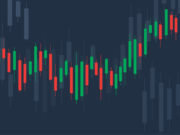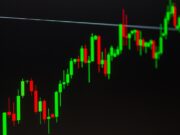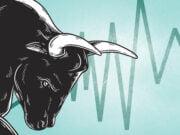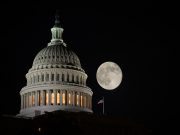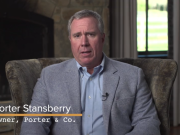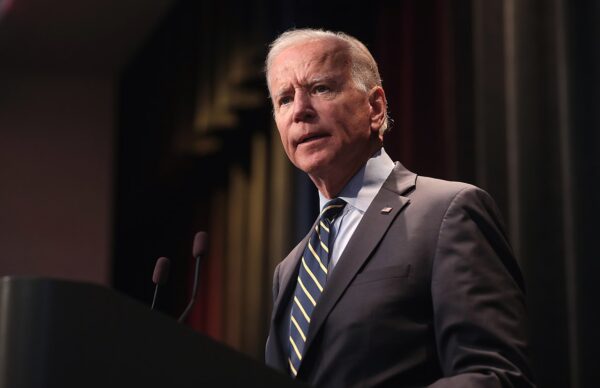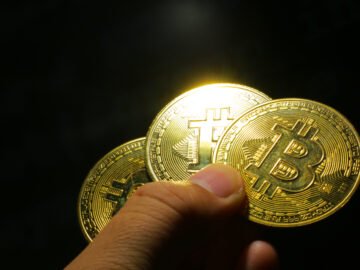Stock futures steadily ticked upward ahead of the open this morning. The three major indices continued their recovery and are still trending upwards after Monday’s dramatic sell-off. Positive showings from Coca-Cola (KO) and Verizon (VZ), for example, have also started to ease investors’ worries.
Yesterday during the “B-Word Conference,” Elon Musk and other significant players joined a panel yesterday to discuss the future of digital currencies. Their stock values have trended upwards since Musk’s input, so what did the forum have to say, and how could it impact digital currencies moving forward?
Johnson & Johnson (JNJ) and Novartis (NVS) had particularly impressive days in their sector yesterday, while resurgence fears unfortunately continue.
S&P 500 and the Dow have risen higher once again on the back of positive earnings results and recovery confidence.
During yesterday’s trading, Wall Street’s leading indices climbed a little higher to boost their recovery, as encouraging quarterly results from firms like Verizon (VZ) and Coca-Cola (KO) rekindled confidence about corporate America’s health. Ten of the eleven major S&P sectors started to rise in early trade, led by economically sensitive industrials, materials, financials, and energy. The S&P 500 index has risen 15.8% this year because of optimism for a more robust recovery due to vaccines and favorable monetary policies. Market players are keeping a close eye on the second-quarter results season to explain the market’s current lofty values.
Coca-Cola announced second-quarter sales that topped 2019 levels on Wednesday, leading the firm to raise its full-year forecast. In morning trade, the company’s stock increased by more than 2%. Compared to what Refinitiv polled Wall Street experts predicted, the company’s numbers showed an Earnings per share (EPS) of 68 cents vs. 56 cents anticipated and $10.13 billion in revenue vs. $9.32 billion predicted. KO‘s net income for the fiscal second quarter was $2.64 billion, or 61 cents per share. Lockdowns caused demand to plummet a year earlier, resulting in the company’s worst quarterly sales drop in at least three decades. According to the company, away-from-home channels, such as restaurants and movie theaters, are rebounding in some regions, such as China and Nigeria. Compared to the same period last year, unit case volume was unchanged, excluding the impact of currency and pricing adjustments. For the quarter, all of its beverage divisions had a double-digit volume increase.
Verizon Communications Inc. (VZ) also rose above analysts’ forecasts for second-quarter earnings and sales yesterday, as more customers have switched to 5G phones and unlimited plans. The firm earned $5.95 billion in net income, or $1.40 per share, compared to $4.84 billion, or $1.13 per share, a year ago. VZ earned $1.37 per share on an adjusted basis, up from $1.18 a year ago and ahead of the FactSet analysts’ estimate of $1.30 per share. Verizon’s operating revenue for the quarter increased to $33.76 billion from $30.45 billion, compared to an average of $32.77 billion expected by FactSet analysts. Consumer sales were $23.5 billion, corporate revenue was $7.8 billion, and media revenue was $2.1 billion. VZ’s retail postpaid phone churn rate was 0.65%, one of the lowest it’s ever seen, as a small number of customers moved cellular providers. Verizon also reported 350,000 retail postpaid net additions, including 197,000 phone net additions, and claimed that around 20% of wireless phone customers in the consumer category currently use 5G phones.
Novartis and JNJ set an optimistic tone for pharmaceutical earnings in the second quarter, increasing shares as Delta variant worries still loom.
Yesterday, Novartis (NVS) also likely set a good tone for the second-quarter results season by beating expectations, and Novartis shares climbed somewhat. Sales for the Swiss pharmaceutical firm totaled $12.96 billion, up from $11.35 billion the previous year and above the $12.53 billion average expectation published by analysts. Net profit came out to be $2.90 billion, up from $1.87 billion the previous year but falling short of the $3.43 billion predicted by analysts. Not only sales of major medications from NVS, but Johnson & Johnson (JNJ) as well, exceeded Wall Street expectations, according to Mizuho Securities analyst Vamil Divan. NVS and JNJ are the first Big Pharma members to disclose second-quarter profits after medical tech firm Intuitive Surgical (ISRG) reported on Tuesday.
Despite growing worries over the vaccine’s efficacy against the Delta variant, Johnson & Johnson (JNJ) said Wednesday that it plans to sell $2.5 billion worth of the Covid-19 vaccine this year. JNJ also announced earnings and sales that came in above Wall Street’s forecasts in its second-quarter financial reports. JNJ’s adjusted Earnings per share (EPS) came out to be $2.48 vs. $2.27 anticipated by analysts. They earned $23.31 billion in revenue vs. $22.21 billion expected. Following the announcement, the company’s stock rose roughly 1% in premarket trade. JNJ‘s pharmaceutical division, which produced the single-shot Covid vaccination, saw revenue increase 17.2% year over year to $12.59 billion. JNJ’s pharmaceuticals chairman, Jennifer Taubert, said most of the company’s key business lines are returning to “pre-Covid levels,” with the manufacturer seeing strength return in the US and Europe. Regardless of Covid variations or any other “blips” connected to the pandemic, the firm anticipates good sales to continue, she added.
As for the delta variant, it is still a growing concern. Covid-19 infections are still on the rise in the United States after a period of decline. According to a CNBC study of data gathered by Johns Hopkins University, new cases increased by 55% from the previous week to an average of 37,000 new cases each day over the last seven days. According to White House senior medical adviser Dr. Anthony Fauci, Los Angeles County’s new mask rule may serve as a model for other areas with high infection rates. He predicted that schools and companies would continue to enforce their mask policies to guard against the delta version. “If you want to go the extra mile of safety even if you’re vaccinated, you might want to consider wearing a mask while you’re indoors, particularly in busy places,” Fauci said in an interview yesterday.
Digital currencies have risen after Elon Musk confirmed ownership and confidence during the “B-Word Conference.”
“BTC is owned by SpaceX, Tesla, and me,” Elon Musk declared today at the B-Word Conference, which was essentially a meeting of the minds to discuss digital currencies. Tesla hasn’t sold its Bitcoin, although it no longer enables customers to pay for cars using the cryptocurrency. “We are not selling Bitcoin, nor am I personally selling, nor is SpaceX selling.” Musk said that he owns Ethereum and, predictably, Dogecoin. While he reiterated the unfavorable environmental effects of BTC mining, he suggested that Tesla is open to taking the digital currency as payment once more during the panel. The price of Ethereum, which had been climbing all day, increased even more, when the news was released. According to statistics, Dogecoin rose to almost 21 cents early in the panel before falling to 19 cents by the end. Musk was on a panel with Cathie Wood and Jack Dorsey. However vague they were, Musk’s statements demonstrate that he still wields significant sway over digital currency prices. After reaching an all-time high of nearly $63,000 in April, the cost of BTC dropped below $30,000 on Monday. The price recovered when the wealthy founder provided more data about his and his companies’ interests at the virtual panel.
Jack Dorsey, Twitter’s CEO, was particularly optimistic about BTC and said that what inspires him the most about Bitcoin is the community driving it and that it “reminds him of the early internet.” He went on to say that what drives his thinking and drives his passion behind it is, “If the internet has a chance to get a native currency, what would that be? To me, it’s BTC because of those principles, because of its resilience.”
Meanwhile, Cathie Wood, the CEO of Ark Invest, has made her feelings and intentions known as well, as her company has been progressively expanding its investment in the Bitcoin trust, which now controls over 600,000 bitcoins or about 3.1% of the entire supply of the digital currency. Cathie Wood revealed earlier in the year that she felt the digital asset might reach a price of $400,000. More institutional investors are expected to enter the crypto sector, according to Wood. Cathie Wood has made a name for herself in the investing world by taking highly hazardous bets, and when those bets paid off, as they did in the case of Tesla, the CEO’s reputation skyrocketed.
The B Word conference aimed to “de-mystify,” “de-stigmatize,” and “correct the popular narrative” surrounding BTC, as well as encourage its institutional acceptance and use. One thing is for sure: It certainly seems to have had an impact on Wall Street.
Where to invest $1,000 right now...
Before you consider buying Coca-cola, you'll want to see this.
Investing legend, Keith Kohl just revealed his #1 stock for 2022...
And it's not Coca-cola.
Jeff Bezos, Peter Thiel, and the Rockefellers are betting a colossal nine figures on this tiny company that trades publicly for $5.
Keith say’s he thinks investors will be able to turn a small $50 stake into $150,000.
Find that to be extraordinary?
Click here to watch his presentation, and decide for yourself...
But you have to act now, because a catalyst coming in a few weeks is set to take this company mainstream... And by then, it could be too late.
Click here to find out the name and ticker of Keith's #1 pick...

